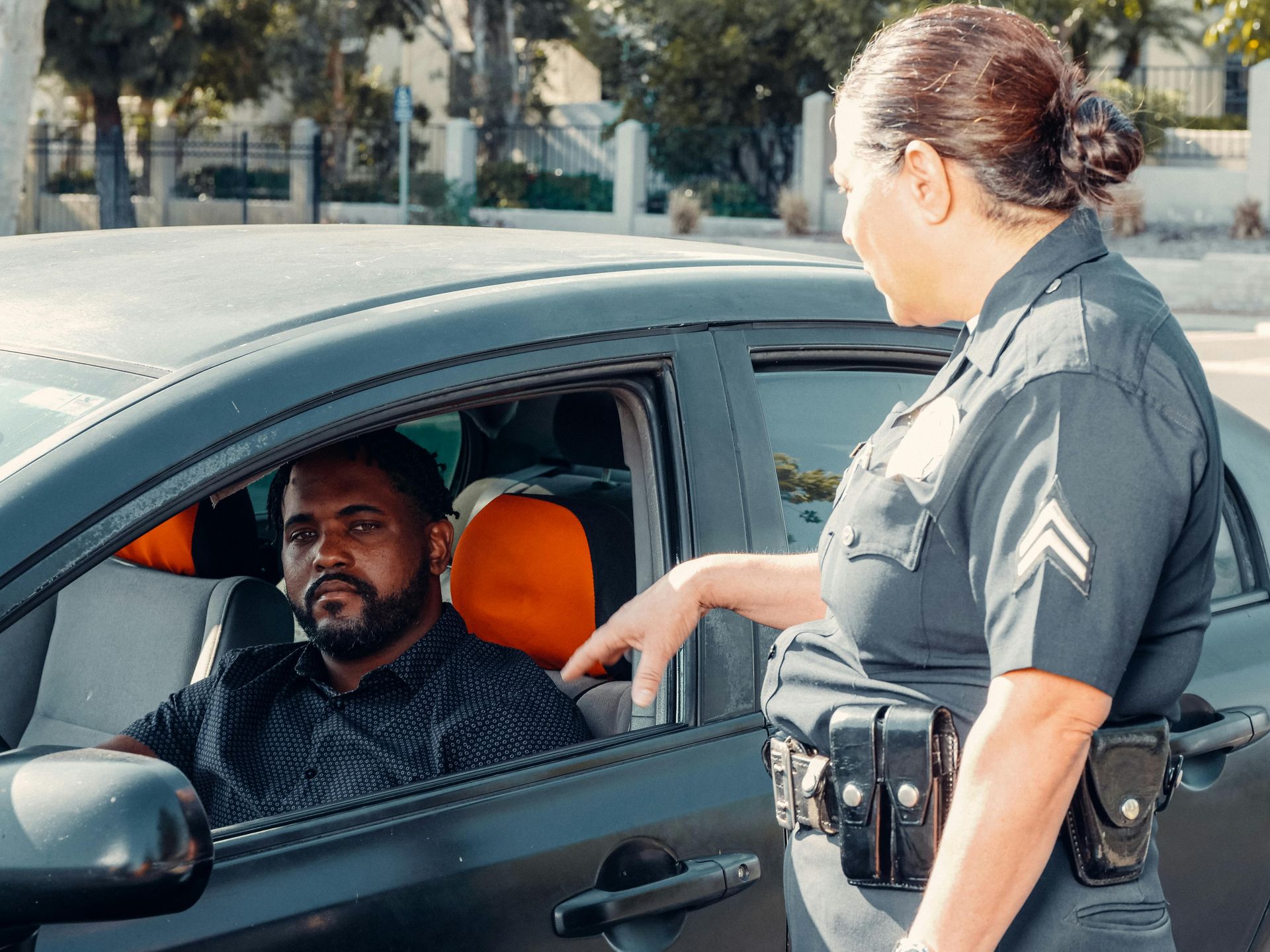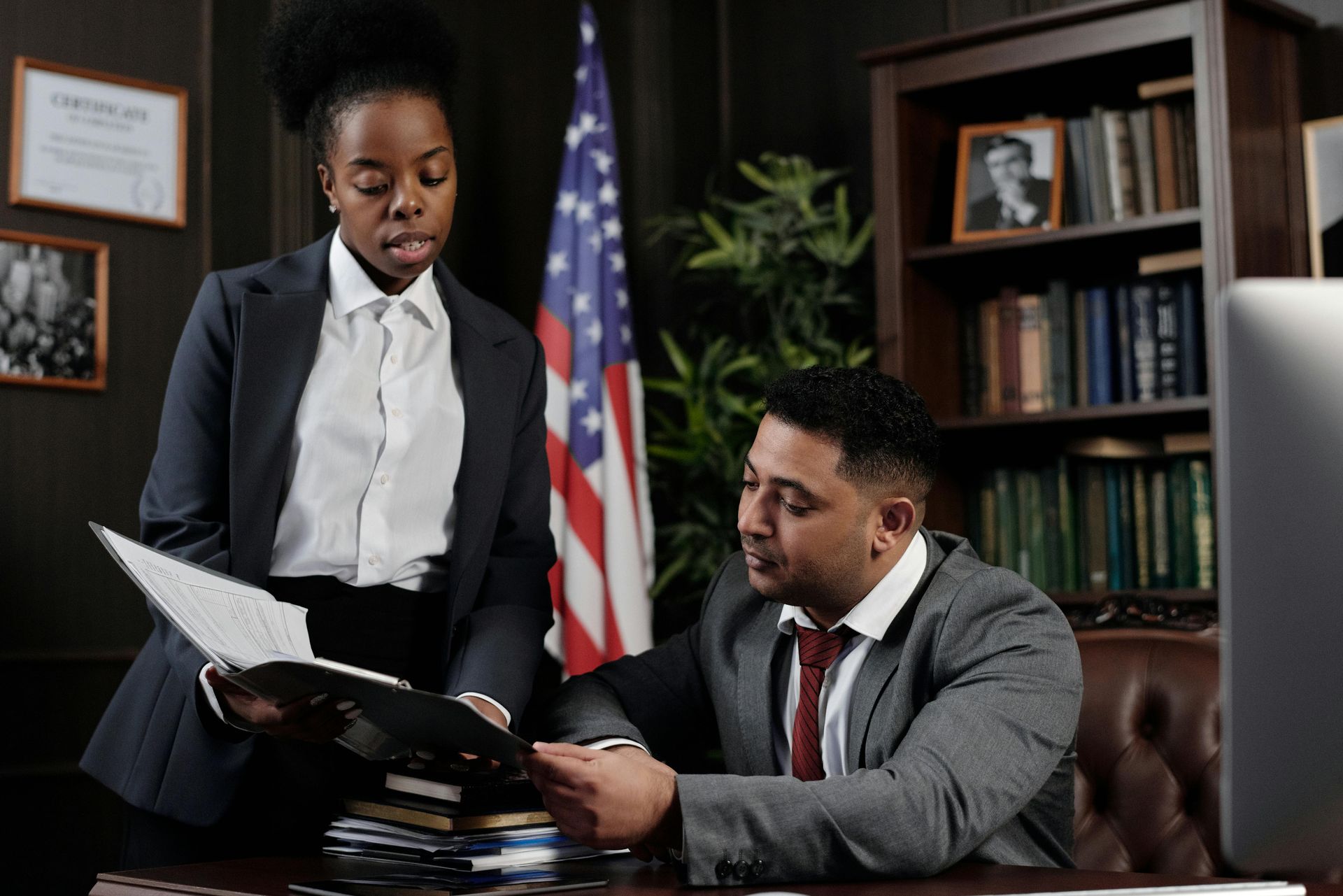Крис Квадрос-Рагар, эсквайр.
Крис Квадрос-Рагар, эсквайр, электронная почта: kragar@santoslloydlaw.com

In a renewed wave of enforcement, U.S. Immigration and Customs Enforcement (ICE) has started sending formal alerts to certain F-1 students participating in Optional Practical Training (OPT), flagging that their records reflect over 90 days without any reported employment. These students have been advised to update their employment status in the Student and Exchange Visitor Information System (SEVIS) within 15 days. Failure to take timely corrective action may lead to the termination of the student's SEVIS record, effectively marking them as out of status, and may ultimately trigger removal proceedings. The notices are intended as a warning that students who do not comply with OPT reporting obligations are at risk of serious immigration consequences. Understanding OPT and Its Unemployment Limits Optional Practical Training (commonly referred to as “OPT”) is a work authorization benefit that allows eligible F-1 international students to gain hands-on experience in their field of study. Students may apply for pre-completion OPT (while still in school) or post-completion OPT (after graduation), typically for up to 12 months. Those with degrees in qualifying STEM fields may apply for an additional 24-month STEM OPT extension, giving them a total of 36 months of work authorization in the U.S. To maintain valid F-1 status while on OPT, students must remain actively employed in a position related to their field of study. The amount of time a student may remain in the United States while on OPT without being properly employed is capped at: 90 days during the standard 12-month post-completion OPT, and 150 days for those on the STEM OPT extension, which includes any days of unemployment accrued during the initial OPT period. These unemployment limits are cumulative and enforced strictly through SEVIS monitoring. What Should F-1 Students Do? If you are an F-1 student on OPT or STEM OPT and receive a warning or are unsure about your compliance status, act quickly: Contact your Designated School Official (DSO) immediately to review and, if necessary, update your SEVIS record. Ensure all employment is properly documented and reported through your school’s international office. Do not ignore warning notices, as failure to respond may lead to SEVIS termination and potentially the initiation of removal proceedings. It is also advisable to consult with a qualified immigration attorney to explore available options and understand how enforcement actions may affect your status or future immigration plans. If you received a notice or have questions about your F-1 status, our attorneys are here to help you take the right steps to protect your future in the United States. Contact us today to schedule a consultation.

On January 29, 2025, President Trump signed the Laken Riley Act into law, significantly altering how immigration policies are enforced in the United States. This legislation grants State attorneys general and other authorized officials unprecedented authority to interpret and implement federal immigration policies. It also empowers them to take legal action against the federal government if they believe federal immigration enforcement negatively impacts their state. With this new authority, states now play a direct role in shaping immigration outcomes—a responsibility traditionally held by the federal government. One of the most immediate effects of the Laken Riley Act is that it allows states to seek injunctive relief to block the issuance of visas to nationals of countries that refuse or unreasonably delay the acceptance of their citizens who have been ordered removed from the United States . This means that if a country does not cooperate with U.S. deportation efforts, its nationals—regardless of their legal status—could face significant difficulties obtaining or renewing visas. As a result, foreign nationals from these countries may encounter increased uncertainty when traveling internationally or securing work authorization in the U.S. Beyond visa processing, the law introduces a new level of unpredictability into the immigration system. By allowing state attorneys general to intervene in federal procedures, and immigration policies that may now vary based on state-level decisions. In the coming months, it remains to be seen how individual states will wield this power—whether they will actively seek to block visa issuance or push for broader immigration enforcement measures. For foreign nationals and employers, staying informed about which countries are deemed “uncooperative” is now more important than ever. Those needing visa renewals or planning international travel should prepare for potential delays and seek professional guidance to navigate these uncertainties. The Laken Riley Act also mandates federal immigration authorities to detain and deport individuals without legal status who are charged with certain offenses, including minor theft or shoplifting, assaulting a law enforcement officer, and crimes resulting in death or serious bodily injury. This provision underscores a stricter approach to immigration enforcement, affecting individuals accused of both minor and serious offenses. With immigration policies now subject to a new layer of state involvement, it is more important than ever to stay informed and prepared for potential challenges. If you have concerns about how the Laken Riley Act may affect your immigration status or business, contact Santos Lloyd Law Firm for strategic counsel tailored to your needs.

A key development occurred in December 2024, when the deference policy was officially written into regulation (the “H-1B modernization rule”), set to take effect on January 17, 2025. Once it takes effect, USCIS adjudicators must apply the deference policy to extension requests involving the same employer, the same employee, and the same job details. USCIS can still decide not to defer to the previous approval if: There was a material error in the earlier approval. There has been a material change in circumstances or eligibility. New information raises doubts about eligibility. Even in these situations, officers must explain why they are not deferring. Importantly, USCIS does not have to defer to decisions made by other agencies, such as the U.S. Department of State or Customs and Border Protection. By turning the deference policy into a regulation, it becomes more difficult for future administrations to eliminate it quickly. Any attempt to rescind or change the policy now requires a lengthy rulemaking process that includes a public notice-and-comment period. Key Takeaways for Employers Greater Predictability: The deference policy, now a regulation, gives employers more certainty that extension petitions will be approved if there are no major changes in the employee’s role or the employer’s situation. Potential Changes Ahead: A future administration could still try to rescind this rule, but they must follow a formal regulatory process, which takes time and offers employers some warning. File Extensions Early: Employers can submit extension petitions up to six months before a visa expires. Filing early can help avoid unexpected policy shifts and minimize risks of RFEs or denials. Overall, the codification of the deference policy is a significant step that offers much-needed stability and efficiency in the U.S. immigration process. By planning ahead and staying informed, employers can take advantage of this improved predictability. As always, working closely with an immigration attorney ensures that extension applications are accurate, well-prepared, and filed promptly—especially during times when policy may evolve.

The United States has long been a prime destination for both business ventures and leisure travel. Every year, thousands of individuals from across the globe visit the U.S. for short-term purposes such as business meetings or vacations. To do so, foreign nationals must obtain a non-immigrant visa, with the B1/B2 visa being one of the most commonly used for temporary visits. The B1/B2 visa allows individuals to enter the U.S. for specific purposes, whether for business-related activities or exploring the country’s tourist attractions. Although both visas fall under the same category, they serve distinct purposes depending on the nature of the visit. The B1/B2 visa, issued by the U.S. Department of State, is a dual-purpose visa that enables non-immigrants to enter the United States temporarily for either business (B1) or tourism and other non-business activities (B2). This combined visa offers flexibility, allowing travelers to handle both business and leisure matters within a single trip. The B1 visa is intended for those visiting the U.S. for business purposes. It’s important to note that the B1 visa does not allow for employment or managing a business in the U.S. Instead, it’s ideal for individuals who need to: Consult with business associates. Negotiate contracts or finalize deals. Attend conferences, conventions, or seminars in fields such as education, science, and trade. In short, the B1 visa is for individuals conducting essential business activities during their temporary stay, without seeking employment in the U.S. The B2 visa , on the other hand, is designed for individuals visiting the U.S. for non-business purposes such as: Tourism or vacations. Visiting friends or family. Receiving medical treatment. This visa also allows for participation in other non-business activities, such as social events or short-term recreational courses. Once granted, both B1 and B2 visas typically allow for stays of up to six months. The exact length of your stay is determined by U.S. Customs and Border Protection (CBP) officers upon your entry, based on the purpose of your visit and the terms of your visa. Whether visiting the U.S. to explore business opportunities or enjoy the country’s many tourist attractions, the B1/B2 visa provides a flexible option for short-term stays. By understanding the requirements and differences between these visas, you can better navigate the application process and make the most of your trip to the U.S.

The T visa is a nonimmigrant visa designed specifically for victims of severe forms of human trafficking. It provides recipients with temporary legal status in the United States, allowing them to live and work in the country for up to four years. This visa not only ensures their safety but also grants access to essential public benefits such as housing assistance and medical care. In the fight against human trafficking, the T visa stands as a crucial tool, offering hope and legal protection to victims who have endured unspeakable hardships. Established under the Victims of Trafficking and Violence Protection Act of 2000 (VTVPA), the T visa aims to shield individuals trafficked into the United States from further exploitation while empowering them to assist law enforcement in prosecuting their traffickers. To establish eligibility for a T visa, the applicant must demonstrate that they: 1. have been a victim of a severe form of trafficking in persons; 2. are physically present in the United States, American Samoa, or at a U.S. port of entry on account of such trafficking; 3. have complied with any reasonable request for assistance in a federal, state, or local investigation or prosecution into acts of trafficking or the investigation of a crime where acts of trafficking are at least one central reason for the commission of that crime, except when the applicant was under 18 years of age at the time of victimization or is unable to cooperate with a request due to physical or psychological trauma; 4. would suffer extreme hardship involving unusual and severe harm upon removal from the United States; and 5. are admissible to the United States or qualify for a waiver of any applicable grounds of inadmissibility. The 2021 revisions to the USCIS Policy Manual, particularly in Volume 3, Part B – Victims of Trafficking, have clarified the broad definition of trafficking. This has facilitated more successful T visa cases without requests for evidence or the need for litigation. Application Process Applying for a T visa involves submitting a comprehensive application package to the United States Citizenship and Immigration Services (USCIS). The core of the application is the Form I-914, which includes: Detailed personal information and history of trafficking victimization. Supporting documentation such as police reports, medical records, and witness affidavits. Evidence of cooperation with law enforcement. Proof of extreme hardship if deported. Once USCIS receives the application, they conduct a thorough review to determine eligibility for the T visa. Upon approval, T visa holders receive temporary legal status in the U.S. for up to four years. During this period, they can rebuild their lives with access to crucial resources and the ability to work legally. Importantly, after three years of continued presence in the U.S. under T visa status, individuals may apply to adjust their status to become lawful permanent residents (green card holders). Navigating the complexities of the T visa application process requires legal expertise and compassionate support. At Santos Lloyd, our dedicated team of attorneys specializes in immigration law, with a focus on assisting victims of human trafficking. If you believe you have been a victim of human trafficking or would like a comprehensive screening, please contact our office – we are eager to help you!

Missing out on the H1B lottery can feel like a significant setback, especially for those eagerly looking forward to working in the United States. However, not all hope is lost. There are multiple pathways and options to consider if you find yourself not selected in the initial H1B lottery. 1. Second Chance in the Current Year's Lottery One silver lining for those not initially selected is the possibility of a "second chance" lottery. Registrations not selected in the March lottery remain in the pool for a potential second drawing if initial selections do not complete their application process by the June 30 deadline. This means that your registration could still be picked later in the year. While the probability of selection in this second chance is low due to the high volume of registrants, it's a possibility worth holding onto. 2. Prepare for Next Year's Lottery While waiting for a possible second drawing, it's wise to prepare to file an H1B registration for the next year's lottery. For employers, maintaining an employee's work authorization in the U.S. is critical and requires careful planning, especially if the employee is currently in the U.S. under a different visa status. 3. Additional Study Programs For those on an F-1 visa nearing the end of their OPT or STEM OPT, considering further education could be a beneficial route. Enrolling in another academic program may allow you to qualify for Curricular Practical Training (CPT), which provides work authorization related to your field of study. 4. Employment with H-1B Cap-Exempt Employers Seeking employment with cap-exempt organizations is another viable strategy. These include institutions of higher education, nonprofit entities affiliated with educational institutions, and governmental research organizations. Working for a cap-exempt employer allows you to bypass the lottery system altogether. 5. Alternative Visa Options Several other visa categories might fit your situation if the H1B visa route is currently unavailable: E-1 and E-2 Visas: For nationals from countries with a trade treaty with the U.S., engaging in substantial trade or investment activities. E-3 Visa: Specifically for Australian citizens, this visa shares similarities with the H1B but isn't subject to the cap. H-1B1 Visa: Available to nationals from Singapore and Chile with similar benefits as the H1B visa but without the cap restrictions. O-1 or P-1 Visas: For individuals demonstrating extraordinary abilities in their field or those who are internationally recognized. TN Visa: For Canadian and Mexican nationals in certain professions, allowing easier access to work in the U.S. without a cap limit. L-1 Visa: Allows intra-company transfers for multinational companies. 6. Pursuing Permanent Residency If you're considering a long-term future in the U.S., starting the green card process could be a strategic move. While this is a more lengthy and complex process, it is worth discussing the possibilities – whether employment-based or not - with an immigration attorney to explore your eligibility and timelines. Each of these pathways requires careful planning and understanding of the specific eligibility requirements and timelines. The Santos Lloyd Law Firm team can provide personalized guidance based on your particular circumstances and help you navigate through these alternatives effectively.

The latest policy alert, PA-2024-05, issued by the U.S. Citizenship and Immigration Services (USCIS) on March 21, 2024, brings revisions to the USCIS Policy Manual, specifically focusing on expediting requests. These updates aim to simplify and elucidate the process for applicants, particularly those facing emergencies or urgent humanitarian needs. The primary goal is to make it easier for applicants to understand how to request expedited processing for their various submissions, including applications, petitions, appeals, or motions, especially in cases concerning government interests or urgent situations. While USCIS has historically permitted immigration benefit seekers to request expedited application processing in specific circumstances, the process has frequently been perceived as unclear, with decisions made arbitrarily on a case-by-case basis. The recent update seeks to rectify this by providing clarity and uniformity to the process and establishing explicit criteria and documentation standards. In order to request expedited processing, applicants need to adhere to a more defined procedure. This involves submitting thorough documentation and illustrating the urgency or government relevance of their case. The recent update also explains how USCIS reviews these requests, offering applicants a better grasp of the process. The update introduces special measures for speeding up the processing of Form I-131 (Application for Travel Document) in emergency situations. This acknowledges the urgent need for certain applicants to travel. The policy also acknowledges that expedited requests may be evaluated if there is evident USCIS error, aiming to uphold fairness and accountability within the processing system. These changes aim to make the expedited request process more transparent and understandable for applicants and their representatives. In summary, USCIS's revision regarding expedited requests signifies a notable advancement in rendering the immigration process more transparent and attentive to applicants' requirements. By comprehending these updated guidelines, applicants and their representatives can more effectively navigate the expedited request procedure, ensuring that urgent cases receive due consideration. If you believe you qualify for expedited processing under the recent USCIS policy updates, feel free to contact our office, and we will be more than happy to assist you. FONT : https://www.uscis.gov/policy-manual/volume-1-part-a-chapter-5

The United States has concluded the initial registration phase for the Fiscal Year 2025 H-1B cap season, wrapping up on March 25, 2024 , at noon Eastern Time after a three-day extension. According to a statement from the U.S. Citizenship and Immigration Services (USCIS), the agency will soon commence the random selection of beneficiaries from properly submitted registrations. These selections are anticipated to fulfill the numerical allocations for the FY 2025 H-1B cap, including the master’s cap exemption. Once selected, prospective petitioners will be notified of their eligibility to file an H-1B cap-subject petition for the chosen beneficiaries . As of April 1, 2024, USCIS has implemented a change in the filing location for H-1B and H-1B1 (HSC) Form I-129 petitions. All paper-based submissions must now be directed to USCIS lockbox locations, superseding service centers . This directive applies universally to cap, non-cap, and cap-exempt H-1B filings. Mailing addresses specifically designated for H-1B cap cases can be found on the Form I-129 Direct Filing Addresses page. A clear warning has been issued by USCIS regarding petitions received at USCIS service centers on or after April 1, 2024. Any such submissions will be rejected outright, without any grace period provided. Alongside these procedural adjustments, USCIS has introduced new fees and a revised edition of Form I-129, effective April 1, 2024 . Henceforth, petitions postmarked on or after this date must adhere to the updated fees and utilize the latest edition of Form I-129. USCIS will reference the postmark date to ascertain the correct form version and applicable fees. If you are considering an H-1B visa application or have any questions, please schedule a consultation with one of our experienced attorneys. We are here to assist you. FONT : https://www.uscis.gov/newsroom/alerts/h-1b-form-i-129-filing-location-change-and-fy-2025-h-1b-cap-season-updates-and-reminders

Embarking on the exhilarating journey of launching a new tech startup in the United States is a venture that blends innovation with ambition, and the dynamic landscape of the country offers an unparalleled stage for entrepreneurs to turn their groundbreaking ideas into thriving businesses. The United States highly values its position among the technology leaders of the world. In a nation fueled by a relentless pursuit of technological advancements, the process of bringing a startup to life involves navigating through a myriad of opportunities, challenges, and regulatory landscapes. This is particularly true for foreign entrepreneurs, who must also navigate the immigration system in addition to focusing on launching their businesses. Nevertheless, the United States recognizes the value in bringing technological innovators into the country and has created special considerations for immigrants with education in STEM (Science, Technology, Engineering, and Mathematics) who are seeking to develop important cutting-edge technologies in the United States. These special considerations apply to the EB-2 National Interest Waiver, an immigrant visa classification which leads to permanent residency, and eventually citizenship in the United States. At the heart of every EB-2 National Interest Waiver petition is a proposed endeavor, and while these proposals for the United States can be about nearly anything, the Immigration Service is directed to recognize particular importance for proposals that aim to develop specific technologies that the Biden administration has identified as critical for U.S. competitiveness and national security. In particular, these areas of critical and emerging technologies include: Advanced Computing Advanced Engineering Materials Advanced Gas Turbine Engine Technologies Advanced Manufacturing Advanced and Networked Sensing and Signature Management Advanced Nuclear Energy Technologies Artificial Intelligence Autonomous Systems and Robotics Biotechnologies Communication and Networking Technologies Directed Energy Financial Technologies Human-Machine Interfaces Hypersonics Networked Sensors and Sensing Quantum Information Technologies Renewable Energy Generation and Storage Semiconductors and Microelectronics Space Technologies and Systems If you are a tech entrepreneur with an education in a STEM field, seeking to launch a startup in the U.S. developing any of these technologies, the EB-2 National Interest Waiver might be your ticket to permanent residency. Whether you're drawn to the iconic landscapes of Silicon Valley or the emerging tech scenes across the nation, the time is now to make your mark. If you are interested in applying for a National Interest Waiver to launch a startup in the United States, schedule an appointment with one of our skilled attorneys.

The U.S. Citizenship and Immigration Services (USCIS) has recently announced a significant enhancement to its customer experience with the upcoming launch of organizational accounts for H-1B cap season. These measures, set to debut in February 2024 , aim to boost efficiency and foster collaboration among organizations, legal representatives, and USCIS. One of the key features of this improvement is the introduction of organizational accounts for non-cap filings and the fiscal year (FY) 2025 H-1B cap season. This innovation allows multiple individuals within an organization and their legal representatives to collaborate seamlessly on H-1B registrations, Form I-129 (Petition for a Nonimmigrant Worker), and associated Form I-907 (Request for Premium Processing Service). The introduction of organizational accounts marks a transition to a fully electronic H-1B lifecycle, covering registration, petition preparation, decision-making, and transmission to the Department of State. USCIS expects to launch organizational accounts in February 2024, with the online filing of Forms I-129 and I-907 following shortly thereafter. This shift to electronic filing is anticipated to streamline the H-1B petition process, reducing common errors and eliminating duplicate H-1B registrations. Further, as part of USCIS's broader efforts to enhance efficiency and standardize processes, the paper filing location for Forms I-129 and I-907 will transition from service centers to the USCIS lockbox. This move aims to reduce costs while maintaining a more streamlined and standardized approach to handling H-1B petitions. With these customer experience improvements, USCIS is taking a significant stride towards modernizing and streamlining the H-1B petition process. As we approach the FY 2025 H-1B registration period, Santos Lloyd Law Firm is closely monitoring the evolving landscape of H-1B changes and actively engaging in upcoming sessions to maximize the benefits of these improvements.
Адвокат Крис Квадрос-Рагар полон энтузиазма и предан делу помощи другим в осуществлении их мечты посредством иммиграции. Крис посещала юридическую школу в Бразилии в Федеральном университете Санта-Катарины (UFSC), которую окончила в 2019 году. Также в 2019 году она поступила на юридический факультет Гулда Университета Южной Калифорнии (USC) в Лос-Анджелесе. В 2020 году она получила степень магистра права и бизнеса и экономики. До прихода в Santos Lloyd Крис работала младшим адвокатом в юридической фирме по трастам и недвижимости в Калифорнии. Ее знание требований и процедур федеральных агентств, а также ее взгляд на этот процесс как иммигранта вдохновили ее продолжить карьеру в области иммиграционного законодательства. Когда Крис не на работе, она любит проводить время со своими собаками, ходить в походы, играть в гольф и готовить. Образование и достижения Доктор юридических наук, UFSCM, магистр права (LL.M.), USC∘ Получил стипендию Гулда Декана Университета Южной Калифорнии∘ Окончил с отличием Приём в адвокатуру Коллегия адвокатов штата Калифорния Языки Португальский английский




